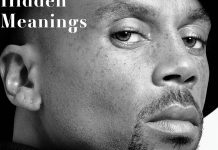
Richard Jay Hutto
 The rich may be different from you and me, but often it’s the rich wannabes who are downright twisted. In A Peculiar Tribe of People: Murder and Madness in the Heart of Georgia (Lyons Press, $24.95), Richard Jay Hutto unearths a fifty-year-old crime that has it all: racism, insanity, and taboo sex. This wickedly entertaining Southern gothic mystery begins in 1960, when conniving Chester Burge, loathsome black-sheep cousin of the prominent Macon family of Dunlaps, murders his wife. The explosive trial that follows uncovers all of Burge’s secrets, from business scams to a proclivity for men.
The rich may be different from you and me, but often it’s the rich wannabes who are downright twisted. In A Peculiar Tribe of People: Murder and Madness in the Heart of Georgia (Lyons Press, $24.95), Richard Jay Hutto unearths a fifty-year-old crime that has it all: racism, insanity, and taboo sex. This wickedly entertaining Southern gothic mystery begins in 1960, when conniving Chester Burge, loathsome black-sheep cousin of the prominent Macon family of Dunlaps, murders his wife. The explosive trial that follows uncovers all of Burge’s secrets, from business scams to a proclivity for men.Author Hutto has an intriguing pedigree: A former attorney, he served as White House appointments secretary for Jimmy Carter’s family, was chairman of the Georgia Council for the Arts, and has written several books on America’s Gilded Age. He also is an elected member of the Macon City Council. In the prologue, he writes about his fascination with Burge’s old mansion, known locally as “the murder house.” “Like a teenager who was told the dark, abandoned house in the neighborhood is haunted,” he writes, “I was intrigued, drawn toward the mystery of the mansion on the hill.” Even after ten years of research, Hutto couldn’t find all the answers. Forced to rely on fading memories and newspaper accounts in lieu of court transcripts, he wisely lets a crazy-quilt cast of eccentrics propel this real-life mystery.
Also new . . .
The South and America Since World War II by James C. Cobb
(Oxford University Press, $24.95)
As a region, the South always seems planted on that line between quintessentially American and utterly foreign—sometimes central to the national zeitgeist and more often on the periphery, proud and defiant. James C. Cobb, a historian at the University of Georgia, has spent his career putting that sense of otherness into a much larger political, cultural, and economic context. His new book is a fascinating journey through the three generations leading up to the 2008 presidential election, with the region “a strikingly red island in an increasingly blue sea.” As in all of Cobb’s books, the writing is lively, and priceless nuggets of trivia illustrate monumental shifts in human history. “Tractors only enhanced the relative advantages of farming on a larger scale,” Cobb writes, “and as fleets of them rolled into the field at one end, plowmen leading their mules made their exits from the other.” In the deep South, the mule population plummeted some 350,000 after the war.
(Oxford University Press, $24.95)
As a region, the South always seems planted on that line between quintessentially American and utterly foreign—sometimes central to the national zeitgeist and more often on the periphery, proud and defiant. James C. Cobb, a historian at the University of Georgia, has spent his career putting that sense of otherness into a much larger political, cultural, and economic context. His new book is a fascinating journey through the three generations leading up to the 2008 presidential election, with the region “a strikingly red island in an increasingly blue sea.” As in all of Cobb’s books, the writing is lively, and priceless nuggets of trivia illustrate monumental shifts in human history. “Tractors only enhanced the relative advantages of farming on a larger scale,” Cobb writes, “and as fleets of them rolled into the field at one end, plowmen leading their mules made their exits from the other.” In the deep South, the mule population plummeted some 350,000 after the war.
The Perfect Love Song: A Holiday Story by Patti Callahan Henry
(Vanguard Press, $15.95)
In this ubersweet love story wrapped in a faux Irish fable by Atlantan Patti Callahan Henry, a young singer-songwriter is torn between fame and family. “Jimmy Sullivan—God bless his soul—wrote the perfect Christmas song,” the novel begins, setting the folksy tone. “Now, I’m not the only one who says this, so don’t go thinking this is just my opinion. This was so perfect a song that it almost ruined him.”
(Vanguard Press, $15.95)
In this ubersweet love story wrapped in a faux Irish fable by Atlantan Patti Callahan Henry, a young singer-songwriter is torn between fame and family. “Jimmy Sullivan—God bless his soul—wrote the perfect Christmas song,” the novel begins, setting the folksy tone. “Now, I’m not the only one who says this, so don’t go thinking this is just my opinion. This was so perfect a song that it almost ruined him.”
God’s Own Party: The Making of the Christian Right by Daniel K. Williams
(Oxford University Press, $29.95)
Daniel K. Williams, an assistant professor at the University of West Georgia, puts the Christian Right in deep historical context, charting all the cultural changes and electoral shifts since the 1920s that have allowed evangelicals to methodically redefine American politics.
Atlanta: Yesterday & Today by Rebecca Burns
(West Side Publishing, $24.95)
This oversized coffee table book by former Atlanta editor in chief Rebecca Burns traces the city’s history from “Standing Peachtree” to “The ATL.” Historic images and thoroughly researched text provide an in-depth look into a “city built on self-confidence.”
Photograph by Maryann Bates
Advertisement















